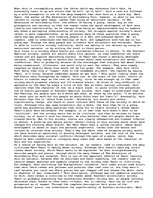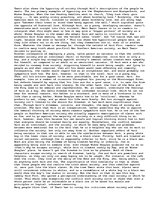-
Literary Analysis Paper for the Adventures of Huckleberry Finn: What is the effect of having Huck, a naïve boy, and not an omniscient narrator, tell the story?
Level:
Secondary school
Literature:
n/a
References:
Not used
Send to email
Your name:
Enter an email address where the link will be sent:
Hi!
{Your name} suggests you to check out this eKönyvtár paper on „Literary Analysis Paper for the Adventures of Huckleberry Finn: What is the effect of having Huck, a naïve boy, and not an omniscient narrator, tell the story?”.
Link to paper:
https://eng.ekonyvtar.eu/w/643737
Link to paper:
https://eng.ekonyvtar.eu/w/643737
Email has been sent



